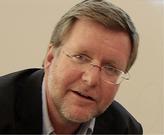

 Belknap Press
Belknap Press
Empire and Righteous Nation: 600 Years of China-Korea Relations


Key Metrics
- Odd Arne Westad
- Belknap Press
- Paperback
- 9780674292321
- -
- -
- History > Asia - China
- English
 Secure Transaction
Secure TransactionBook Description
The relationship between China and Korea is one of the most important, and least understood, in Asia. With the wisdom and clarity we have come to expect from Westad, this book illuminates the long history of these two neighbors.
--Rana Mitter, author of China's Good War
A timely must-read primer on the China-Korea relationship...and its impact on and implications for our world today.
--Carter J. Eckert, author of Park Chung Hee and Modern Korea
Valuable and wide-ranging...As two thousand years of history have shown, China's role in Korea is a complex one. Westad's short and stimulating study provides many clues to understanding that relationship.
--J. E. Hoare, Literary Review
An insightful and entertaining primer on Korean history over the last 600 years.
--Popular History Books
Koreans long saw China as a mentor and protector. Chinese culture heavily influenced Korea, whose first written language used Chinese characters, while Confucianism shaped the structure of Korean government. This deep, sometimes fraught, relationship has done more to shape the politics of the region than many realize.
During the Ming Dynasty, Korea agreed to become a vassal of China, in hopes of escaping ruin at the hands of the Mongols. The connection frayed in the nineteenth century, when the Qing, beset by domestic problems, did little to protect Korea from encroaching Western powers or the imperial designs of Meiji Japan. The relationship shifted again in the twentieth century as nationalism, revolution, and war refashioned Asia. Odd Arne Westad lays bare the disastrous impact of the Korean War on the region and offers a keen assessment of Sino-Korean interactions today, including the thorny question of reunification.
Author Bio
Odd Arne Westad is a scholar of modern international and global history, with a specialization in the history of eastern Asia since the 18th century. He studied history, philosophy, and modern languages at the University of Oslo before doing a graduate degree in US/international history at the University of North Carolina at Chapel Hill, where he primarily worked with Michael H. Hunt. Westad has published sixteen books, most of which deal with twentieth century Asian and global history.
In the first part of his career, Westad was mainly preoccupied with the history of the Cold War, China-Russia relations, and the history of the Chinese civil war and the Chinese Communist Party. He published two monographs, Cold War and Revolution, which deals with US and Soviet intervention in the Chinese Civil War in 1944-1946, and Decisive Encounters, which is a general history of the Chinese civil war and the Communist victory in the period from 1946 to 1950. He also edited several books on Sino-Soviet and Cold War history topics.
Since the mid-2000s, Westad has been concerned with more general aspects of post-colonial and global history, as well as the modern history of China. The three key works from this period are The Global Cold War, which argues for ways of understanding the Soviet-American conflict in light of late- and post-colonial change in Asia, Africa, and the Caribbean; Restless Empire, which discusses broad trends in China’s international history since 1750; and The Cold War: A World History, which summarizes the origins, conduct, and results of the conflict on a global scale.
Today Westad is mainly interested in researching histories of empire and imperialism, first and foremost in Asia, but also world-wide. He is also trying to figure out how China’s late twentieth century economic reforms came into being and how their results changed the global economy.
Westad joined the faculty at Yale after teaching at the London School of Economics, where he was School Professor of International History, and at Harvard University, where he was the S.T. Lee Professor of US-Asia Relations. He is a fellow of the British Academy and of several other national academies.
Source: Yale University
Videos












Community reviews
Write a ReviewNo Community reviews